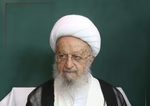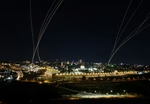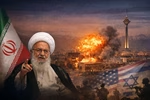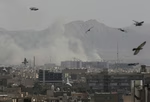Genocide survivor: Swedish Academy sees Muslim lives as less valuable

With one decision, the Swedish Royal Academy has erased 25 years of Bosnia’s history, and now the battle for the truth about what happened in the country during the 1992-1995 war is starting again, the director of the Srebrenica-Potocari Memorial Center, Emir Suljagic, told N1 on Friday.
Oglas
Suljagic commented on the Nobel Prize for literature which was awarded to Peter Handke, a vocal supporter of the policies of late Serbian strongman Slobodan Milosevic.
As the award was being handed to the controversial Austrian writer on Tuesday, hundreds of people, mostly Bosnians, protested in downtown Stockholm, accusing Handke of denying the 1995 Srebrenica Genocide and of being an apologist for Serbian war crimes.
“To expect that we would change the decision of the Academy was an illusion, our goal was to ‘hijack their message’. I am glad that we found support among a large number of people in that process,” Suljagic said.
Oglas
“The Swedish Royal Academy has assessed that the lives of Muslims are not as valuable as the lives of some other citizens of Europe,” he said, quoting prominent writer Aleksandar Hemon who wrote that, for those who appreciate Handke’s work, “genocide comes and goes, but literature is forever.”
Suljagic said that many do not see to what extent and “on how many levels this decision is problematic.”
“With one decision, they have reset the past 25 years of our history,” he stressed, adding that the “the fact that we managed to gather such a large number of people (in Stockholm) should not be interpreted as a victory, it is again the beginning of a battle which we thought we won in 1995 or 1996.”
He explained that the Nobel Committee’s decision was made based on two of its members reading a book which was “a complete conspiracy theory” and which called the wartime concentration camps in Bosnia’s Krajina region a “PR exercise.”
Oglas
“This speaks about how little we have done on this issue, how little we have written and published in the English language on it,” he said.
He stressed that millions were given to “some institutes” which were tasked with promoting what happened in Bosnia until now, but that, despite this, if it was not for his own book about Srebrenica and the activism by survivor Hasan Nuhanovic, “nothing relevant about Srebrenica would have gone outside the borders of the country.”
“The question is whether we will be the owners of our history and our country or whether someone else will. These are serious issues, this decision is a signal of tectonic changes in the perception of Europe regarding the genocide in Bosnia and Herzegovina and its views on the country today,” he Suljagic concluded.
Kakvo je tvoje mišljenje o ovome?
Učestvuj u diskusiji ili pročitaj komentare
Oglas
Kakvo je tvoje mišljenje o ovome?
Učestvuj u diskusiji ili pročitaj komentare
Oglas





 Srbija
Srbija
 Hrvatska
Hrvatska
 Slovenija
Slovenija



























































